Recent Blog Posts
Do Violent Crimes Increase in the Summer in Illinois?
 While the summer months are perfect for spending time outdoors, Illinois tends to experience an increase in violent crimes during the summer months, especially in large cities. Many studies have aimed to pinpoint the correlation between violent crimes and hot weather, with several factors showing that certain crimes are more commonly encountered during the summer.
While the summer months are perfect for spending time outdoors, Illinois tends to experience an increase in violent crimes during the summer months, especially in large cities. Many studies have aimed to pinpoint the correlation between violent crimes and hot weather, with several factors showing that certain crimes are more commonly encountered during the summer.
If you are arrested for a violent crime this summer, it is vital that you contact a skilled Illinois criminal defense lawyer to advocate for your rights and provide you with legal guidance.
Statistics Show Violent Crimes Increase With Hot Weather
It may come as no surprise that hot weather tends to increase tensions and crime, and studies have shown that the summer months do lead to an overall increase in violent crimes such as robbery, theft, aggravated assault, homicide, and sex crimes.
Understanding Illinois Criminal Trespass Charges
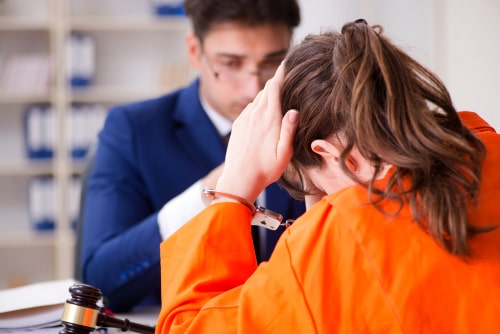 In Illinois, trespassing charges can be handled on a criminal or civil basis. Civil trespassing charges typically end up in civil court with a lawsuit, while criminal trespassing charges can leave you with misdemeanors on your record. Criminal trespassing cases are more severe than civil trespassing cases, and it is important to consult a knowledgeable Illinois criminal defense lawyer if you find yourself faced with a criminal trespass charge.
In Illinois, trespassing charges can be handled on a criminal or civil basis. Civil trespassing charges typically end up in civil court with a lawsuit, while criminal trespassing charges can leave you with misdemeanors on your record. Criminal trespassing cases are more severe than civil trespassing cases, and it is important to consult a knowledgeable Illinois criminal defense lawyer if you find yourself faced with a criminal trespass charge.
What Is Criminal Trespass in Illinois?
The Illinois Criminal Code defines criminal trespass as entering a building illegally, entering onto private property after having been told to stay away, including by a sign, or remaining on private property after you have been asked to leave.
This differs from civil trespass, which typically occurs in conflicts between landlords and tenants. For instance, if a renter fails to pay rent and remains on a property even after being evicted, he or she risks being sued in court for civil trespass.
What Is Reckless Driving in Illinois?
 Reckless driving is common in Illinois, though that does not make it any less dangerous. Illinois law has a specific definition for reckless driving, and people charged with reckless driving may face prison time or fines, depending on the circumstances. If you are facing a reckless driving charge, it is important to reach out to an Illinois reckless driving defense lawyer for guidance.
Reckless driving is common in Illinois, though that does not make it any less dangerous. Illinois law has a specific definition for reckless driving, and people charged with reckless driving may face prison time or fines, depending on the circumstances. If you are facing a reckless driving charge, it is important to reach out to an Illinois reckless driving defense lawyer for guidance.
Illinois Reckless Driving Laws and Consequences
Under Illinois law, reckless driving is when a driver either drives with a “willful or wanton disregard” for safety or operates his or her vehicle when approaching an incline in a way that causes the vehicle to become airborne.
Common types of reckless driving behavior include the following:
- Excessive speeding
What Is Criminal Record Expungement?
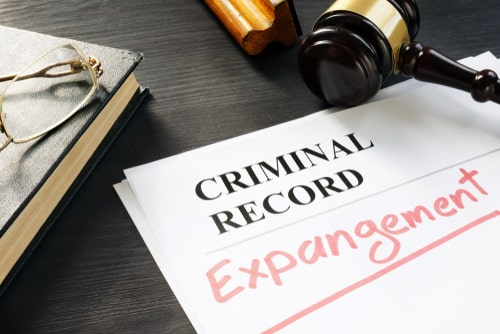 Criminal record expungement is the process of removing items from your criminal record so that they are no longer visible to the public. This can have many beneficial impacts on your life, as once your criminal record is expunged, it is essentially destroyed, and employers, government agencies, schools, and financial institutions will no longer be able to see details about your criminal history.
Criminal record expungement is the process of removing items from your criminal record so that they are no longer visible to the public. This can have many beneficial impacts on your life, as once your criminal record is expunged, it is essentially destroyed, and employers, government agencies, schools, and financial institutions will no longer be able to see details about your criminal history.
A knowledgeable Illinois criminal record expungement lawyer can help you learn if you are eligible for this process and guide you toward expungement.
Do I Qualify for Criminal Record Expungement in Illinois?
Only certain types of arrests or criminal charges qualify for expungement in Illinois. You should note that pending criminal cases or charges cannot be expunged until a final decision has been made on the case. Circumstances that may qualify you for a criminal record expungement in Illinois include the following:
Should I Worry About My Speeding Tickets in Illinois?
 Even though speeding tickets are not typically seen as a huge deal, the reality is that multiple speeding offenses can land you with points on your license and the potential for serious legal consequences. Illinois takes speeding and traffic violations seriously, and you may be left facing a loss of your license, jail time, or other penalties depending on the circumstances of your speeding ticket.
Even though speeding tickets are not typically seen as a huge deal, the reality is that multiple speeding offenses can land you with points on your license and the potential for serious legal consequences. Illinois takes speeding and traffic violations seriously, and you may be left facing a loss of your license, jail time, or other penalties depending on the circumstances of your speeding ticket.
A skilled Illinois speeding ticket defense attorney can help you navigate your legal options when facing a speeding charge.
Points On Your License May Result In Suspension
For every speeding ticket or other moving violation you receive, points may be applied to your license. Drivers who are over 21 and receive three or more speeding or traffic violations within a year may risk having their license suspended, while drivers under 21 risk having their license suspended for two violations within a two-year period.
DUI if Your BAC is Below the Legal Limit in Illinois
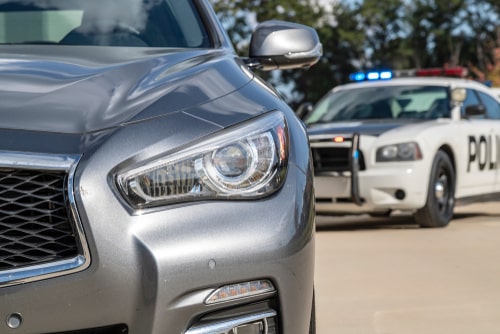 Under Illinois law, it is illegal for drivers aged 21 and older to operate a vehicle with a blood alcohol concentration (BAC) of 0.08 percent or higher. For commercial drivers, that legal limit is 0.04 percent. If the driver is under 21, then they are subject to the state’s zero-tolerance policy that prohibits any detectable amount of alcohol in the driver’s system while driving.
Under Illinois law, it is illegal for drivers aged 21 and older to operate a vehicle with a blood alcohol concentration (BAC) of 0.08 percent or higher. For commercial drivers, that legal limit is 0.04 percent. If the driver is under 21, then they are subject to the state’s zero-tolerance policy that prohibits any detectable amount of alcohol in the driver’s system while driving.
Despite these legal limits, there are still some situations where a driver can be charged with DUI even if tests show a BAC under the legal limit. If you have been charged with drunk driving, it is imperative to contact an Illinois defense lawyer right away to ensure your rights are protected.
Factors in a DUI Charge
Although the state does have BAC limits listed above, these limits are not absolute, and drivers can still be charged with DUI if they show signs of impairment despite having a BAC below these thresholds. Police officers are trained to recognize the physical and behavioral signs of intoxication. Some of the common signs an officer may look for when there is a suspicion of drunk driving are slurred speech, impaired coordination, erratic driving behavior, and the odor of alcohol on the driver’s breath or in the vehicle. Suppose an officer suspects that a driver is drunk based on these observations. In that case, they may request field sobriety tests or a breathalyzer or blood test to assess the driver’s level of intoxication.
What Happens If I Violate My Probation in Illinois?
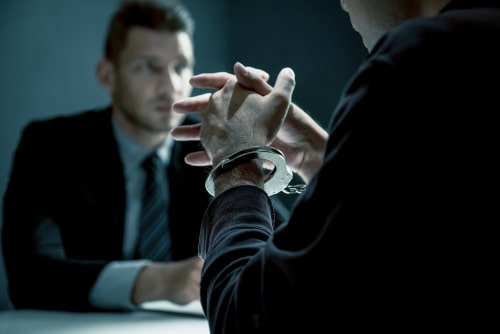 If you are convicted of a crime in Illinois, one of the potential sentences is that you can receive probation. Although probation does mean the convicted individual avoids jail time, there are constraints put in place that he or she must follow, or they risk violating their probation, which can lead to additional legal problems. Speaking with an Illinois criminal defense lawyer is critical if you have been charged with any crime or are accused of violating your probation.
If you are convicted of a crime in Illinois, one of the potential sentences is that you can receive probation. Although probation does mean the convicted individual avoids jail time, there are constraints put in place that he or she must follow, or they risk violating their probation, which can lead to additional legal problems. Speaking with an Illinois criminal defense lawyer is critical if you have been charged with any crime or are accused of violating your probation.
What Is Probation?
The goal of probation is to rehabilitate a person who has been convicted by providing them with opportunities to address underlying issues contributing to their criminal behavior. This may include participation in counseling, therapy, substance abuse treatment programs, or educational and vocational training.
Consequences in Illinois for Underage Drinking
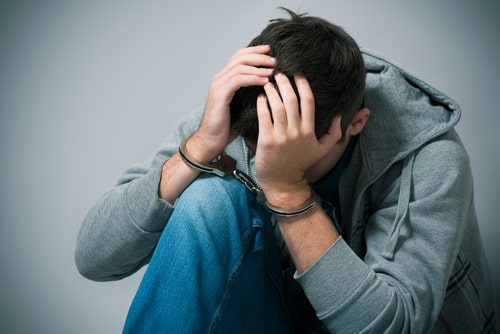 In Illinois, like in many other states across the country, underage drinking carries significant legal consequences. The state has strict laws and penalties in place to deter minors from consuming alcohol and to hold them accountable for their actions. Understanding these consequences is crucial for both minors and their parents or guardians. If your teen has been charged with underage drinking, it is crucial to contact an Illinois defense lawyer as soon as possible.
In Illinois, like in many other states across the country, underage drinking carries significant legal consequences. The state has strict laws and penalties in place to deter minors from consuming alcohol and to hold them accountable for their actions. Understanding these consequences is crucial for both minors and their parents or guardians. If your teen has been charged with underage drinking, it is crucial to contact an Illinois defense lawyer as soon as possible.
Illinois Underage Drinking Law
The legal drinking age in Illinois, as in all states in the U.S., is 21. Anyone under this age who is caught consuming, possessing, purchasing, or attempting to purchase alcohol can face serious criminal charges. These charges can have long-lasting effects on their lives, education, employment opportunities, and personal relationships.
What Is the Grand Jury Indictment Process in Illinois?
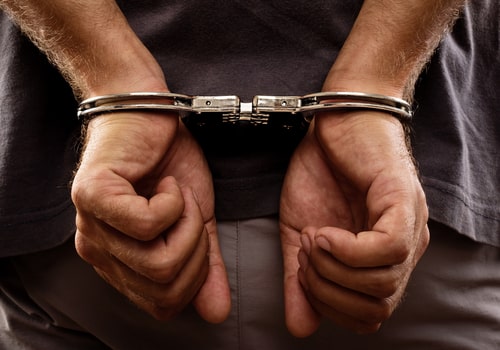 The way the criminal justice process plays out often depends on the classification of the crime you are being charged with. For example, an indictment or information is required in Illinois to prosecute felony offenses. By information does require a preliminary hearing. Misdemeanors crimes, however, may be filed through alternative means, such as a criminal complaint filed by a prosecuting attorney or law enforcement officer, without requiring a grand jury indictment. If you are being accused of a crime, make sure you have an Illinois defense lawyer advocating for you.
The way the criminal justice process plays out often depends on the classification of the crime you are being charged with. For example, an indictment or information is required in Illinois to prosecute felony offenses. By information does require a preliminary hearing. Misdemeanors crimes, however, may be filed through alternative means, such as a criminal complaint filed by a prosecuting attorney or law enforcement officer, without requiring a grand jury indictment. If you are being accused of a crime, make sure you have an Illinois defense lawyer advocating for you.
What Is an Indictment?
An indictment is a formal written accusation issued by a grand jury alleging that a specific individual has committed a crime. It is the initial step in the legal process for prosecuting severe criminal offenses, specifically felonies. An indictment outlines the charges against the defendant, detailing the nature of the alleged criminal acts and providing the basis for the prosecution's case.
Reasons Why a Criminal Case May Be Dismissed
 If you have been arrested, your first thought may be that you will automatically be found guilty of the charges, and there is nothing you can do to stop that process – even if you are innocent of what you are being accused of. The truth is that many of the cases brought before the criminal court system are dismissed before they ever get to trial or dismissed during the trial. The following are some of the most common reasons a case can be dismissed. To learn more or to arrange to have your case evaluated, contact an Illinois defense lawyer.
If you have been arrested, your first thought may be that you will automatically be found guilty of the charges, and there is nothing you can do to stop that process – even if you are innocent of what you are being accused of. The truth is that many of the cases brought before the criminal court system are dismissed before they ever get to trial or dismissed during the trial. The following are some of the most common reasons a case can be dismissed. To learn more or to arrange to have your case evaluated, contact an Illinois defense lawyer.
Insufficient Evidence
One of the common reasons criminal charges are dismissed is because there is a lack of sufficient evidence to support the charges. In criminal proceedings, the prosecution bears the burden of proving the defendant's guilt “beyond a reasonable doubt.” If the evidence presented by the prosecution is insufficient, contradictory, or weak and fails to meet this required standard, the court may dismiss the case. This dismissal ensures that individuals are not unfairly subjected to criminal charges without a solid basis for their prosecution.

 630-448-2001
630-448-2001






